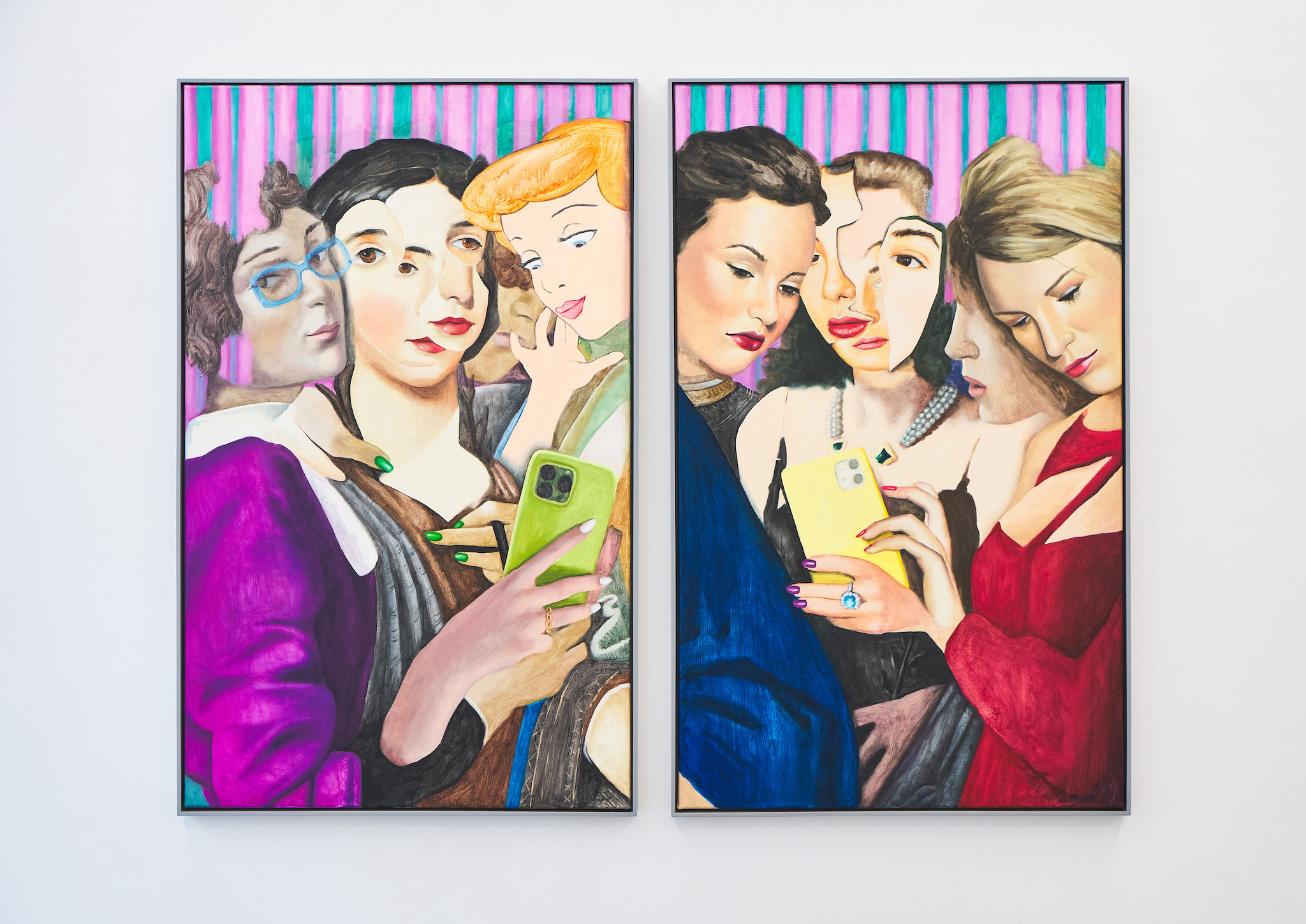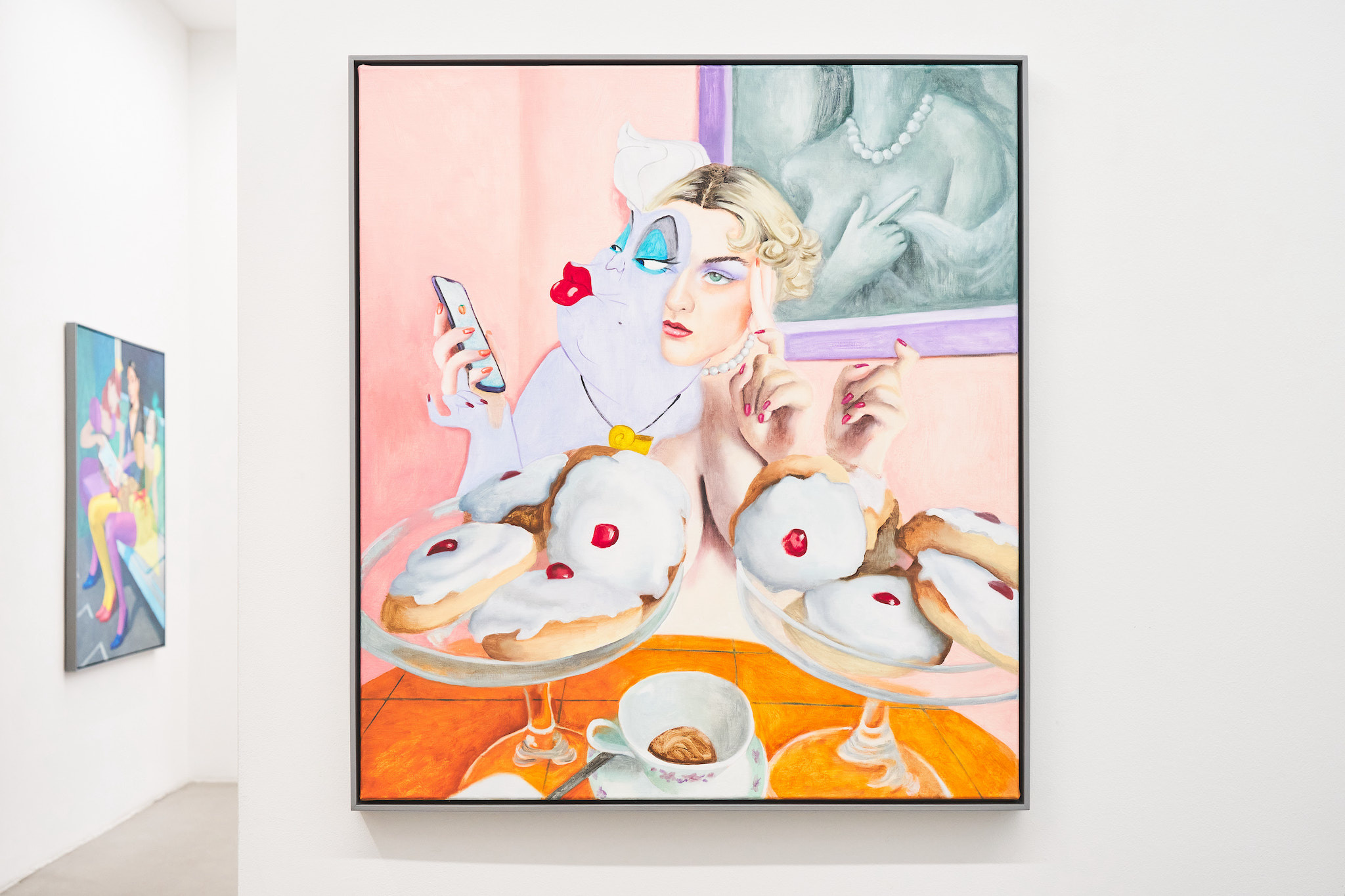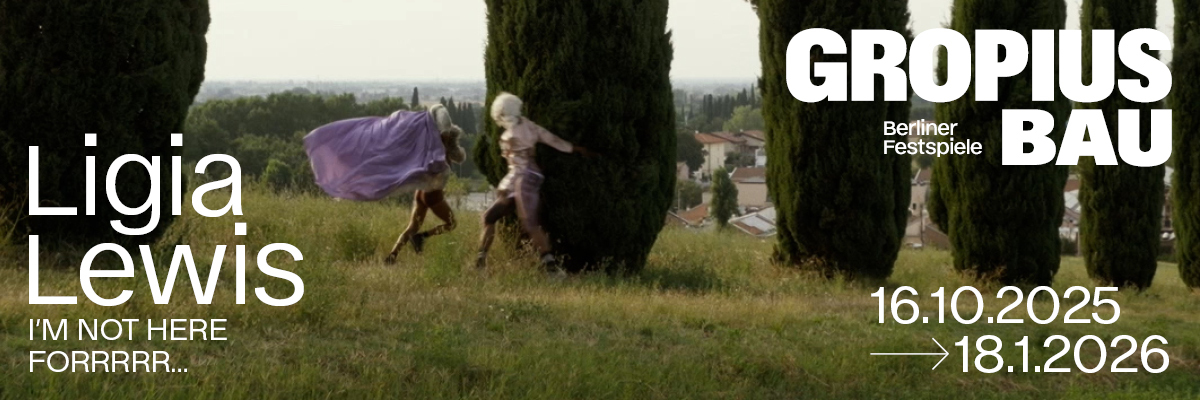
Zohar Fraiman
Game of Phones
Project Info
- 💙 Galerie Russi Klenner
- 🖤 Zohar Fraiman
- 💜 Julia Meyer-Brehm
- 💛 Raphaël Fischer-Dieskau
Share on

Game of Phones, Zohar Fraiman, courtesy the artist and Galerie Russi Klenner
Advertisement

Game of Phones, Zohar Fraiman, courtesy the artist and Galerie Russi Klenner

Game of Phones, Zohar Fraiman, courtesy the artist and Galerie Russi Klenner

Gossip Girl, Zohar Fraiman, courtesy the artist and Galerie Russi Klenner

Tonz of Bunz, Zohar Fraiman, courtesy the artist and Galerie Russi Klenner
Welcome to the Internet: the place where hate and lust are just a click away from each other. Where every need can be instantly satisfied, and future desires are accurately predicted. Welcome to the Game of Phones.
In Zohar Fraiman's paintings, Tinderella sends eggplant emojis and doomscrolling exhaustion kicks in after online shopping. The artist's visual worlds are filled with pop culture references and blur the boundaries between the digital and analogue world, fiction and reality. The exhibition title, for example, refers to the fantasy epic "Game of Thrones" - except that smartphones play the main roles here. Fraiman shows how much these small screens are taking over our lives. Her exclusively female protagonists stare apathetically into the glowing rectangles. Many of them appear exhausted, as if they are helplessly at the mercy of a cycle of sexting, gossip and shopping sprees.
Online, other people's lives seem perfect and our own suddenly seems boring. While we used to admire the clichéd images of women in Disney films, today we no less idolise unrealistic role models on social media. Fraiman blends stars like Bella Hadid, Taylor Swift or Lana del Rey with art historical references: Some compositions or motifs are reminiscent of the works of Giotto, Botticelli or Modigliani. These in turn are combined with characters from films such as Cinderella, Mulan or Aladdin. There are also references from TV series ("Das bin doch ich" / "Gossip Girl"), music references ("Tonz of Bunz") and a pinch of fashion lifestyle ("Topsey Turvey"). The artist uses analogue "glitches" to merge all these levels. Some people inevitably have several pairs of eyes or hands and are half cartoon, half reality. But what of all this is real and how social is social media really?
Works such as "Nom Nom" or "Sweetest Taboo" not only look delectable but are also reminiscent of the consistent posting of every meal. In the mukbang trend, young women stuff themselves with enormous portions in front of the camera. The #foodporn trend often conceals excess or food waste and the algorithm is also interested in eating disorders as long as they look good. In 17th century still lifes, similar masses of food were an indication of transience. And here, too, the memento mori effect is at work: just like the numerous cut flowers and the standard-beautiful model bodies, the attractive cakes and tarts merely symbolise fleeting perfection.
Although Fraiman's pictorial spaces appear colourful and appealing at first glance, they quickly reveal their true colours: the supposedly intimate settings turn out to be cool scenes of a toxic society. The illustrated persons do not communicate with each other and keep their distance - except for the constant close physical contact with their smartphones. They are engrossed in sending ambiguous messages or trying out new face filters. Like masks, they superimpose new individualities over their own egos. How many versions of yourself can you create before your personality splits? At some point, at least the devices pack up. As in Dalí's surrealist depictions, the smartphones melt into a mash of apps and matches ("Waiting for Tonight" / "The Persistence of Ordering").
"When you play the game of phones, you win or you die" is more or less how Cersei Lannister, one of the protagonists in Game of Thrones, puts it. We all play a lot of games - especially online. Fraiman makes us realise that the internet takes over large parts of our lives and distances us from each other. But we don't really have time to think about it: the next post, the next chat, the next push message pops up. The internet is never over. We can't escape the internet. And yet, it's so much fun!
Julia Meyer-Brehm




